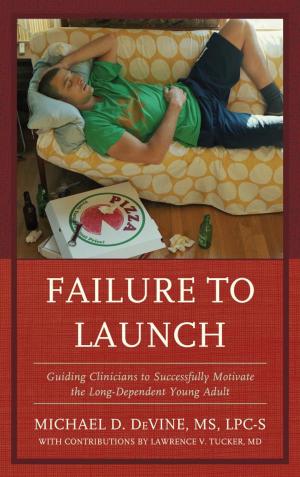Treating Trauma
Relationship-Based Psychotherapy with Children, Adolescents, and Young Adults
Nonfiction, Health & Well Being, Psychology, Child & Adolescent, Child Psychology, Psychotherapy, Interpersonal Relations| Author: | Paula Ammerman, Tali Barr, German Cheung, Daria Dato, Heidi Haddad, Deborah Offner, Sharif Okasha, Claudia Rose, Elsa Rosenberg, Richard Ruth, Wendy von Wiederhold, John Lundin | ISBN: | 9780765709837 |
| Publisher: | Jason Aronson, Inc. | Publication: | August 15, 2013 |
| Imprint: | Jason Aronson, Inc. | Language: | English |
| Author: | Paula Ammerman, Tali Barr, German Cheung, Daria Dato, Heidi Haddad, Deborah Offner, Sharif Okasha, Claudia Rose, Elsa Rosenberg, Richard Ruth, Wendy von Wiederhold, John Lundin |
| ISBN: | 9780765709837 |
| Publisher: | Jason Aronson, Inc. |
| Publication: | August 15, 2013 |
| Imprint: | Jason Aronson, Inc. |
| Language: | English |
Treating Trauma: Relationship-Based Psychotherapy with Children, Adolescents, and Young Adults presents a theoretically based and empirically supported framework for work with traumatized children, youth, and young adults who have spent time in foster care. It offers vivid examples of cases from the work of clinicians of A Home Within, a national non-profit focused on meeting the emotional needs of current and former foster youth. These nine case studies illustrate the vital role that relationships play in helping overcome the trauma of chronic, unexpected, and unexplained losses. They describe the work with clients, the collateral work, and also the therapists’ personal experiences of treating this vulnerable population.
Treating Trauma: Relationship-Based Psychotherapy with Children, Adolescents, and Young Adults presents a theoretically based and empirically supported framework for work with traumatized children, youth, and young adults who have spent time in foster care. It offers vivid examples of cases from the work of clinicians of A Home Within, a national non-profit focused on meeting the emotional needs of current and former foster youth. These nine case studies illustrate the vital role that relationships play in helping overcome the trauma of chronic, unexpected, and unexplained losses. They describe the work with clients, the collateral work, and also the therapists’ personal experiences of treating this vulnerable population.















